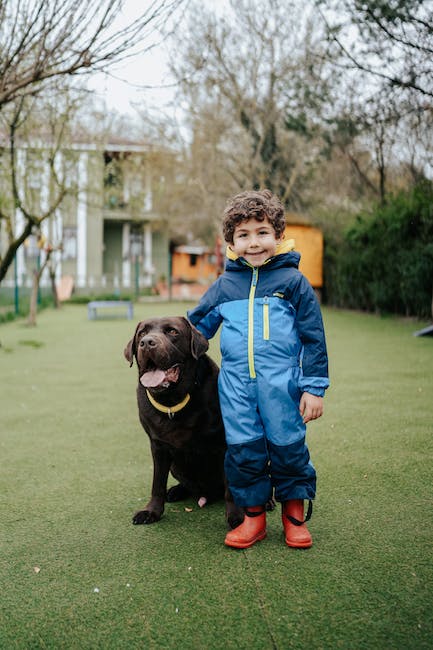As the saying goes, “a dog is man’s best friend.” But what about our friends on the farm? When it comes to choosing a pet for your agricultural operation, there are a few key factors to consider. From temperament to size, the right pet can make all the difference in your daily routine. In this article, we’ll explore the ins and outs of selecting a farm-friendly pet with the perfect temperament. Whether you’re a seasoned farmer or just starting out, read on to discover how to find the perfect furry companion for your farm.
1. Finding the Right Fit: Choosing a Pet with a Farm-Friendly Temperament
When it comes to choosing a pet for your farm, it’s important to find an animal with a temperament that is well-suited to the environment. Here are some tips for finding the right fit:
– Consider the animal’s natural instincts: Some animals are more naturally suited to farm life than others. For example, dogs bred for herding or guarding livestock may be a good fit for a farm, while breeds that are more prone to chasing or hunting may not be as well-suited. Similarly, some cat breeds may be better at keeping rodents at bay than others.
– Look for animals that are adaptable: Farm life can be unpredictable, so it’s important to choose animals that can handle a variety of situations. Animals that are easily stressed or frightened may not be the best fit for a farm environment. Instead, look for animals that are calm and adaptable, and that can handle changes in routine or unexpected events.
It’s also important to consider the specific needs of your farm when choosing a pet. For example, if you have a lot of open space, a dog that needs plenty of exercise may be a good fit. If you have a lot of livestock, a cat that is good at hunting rodents may be helpful. Ultimately, the key is to choose an animal that will be a good fit for your farm and that will thrive in the environment you provide.
2. From Loyal Companions to Helpful Workers: Matching Pet Personalities to Farm Needs
When it comes to farm work, having the right animals can make all the difference. While some pets may be loyal companions, others can be trained to become helpful workers. Matching pet personalities to farm needs is crucial for a successful and efficient operation. Here are some examples of pets that can be trained to become valuable farm workers:
- Dogs: Known for their loyalty and obedience, dogs can be trained to herd livestock, guard the farm, and even hunt pests like rats and mice.
- Cats: While cats may seem like lazy house pets, they are actually skilled hunters and can help keep the farm free of rodents and other pests.
- Goats: Goats are not only great for producing milk and meat, but they can also be trained to clear brush and weeds from the farm.
- Horses: Horses are often used for transportation and plowing fields, but they can also be trained for tasks like herding cattle and pulling carts.
By matching pet personalities to farm needs, farmers can create a harmonious and productive environment. It’s important to remember that not all pets are suited for farm work, and some may require extensive training. However, with patience and dedication, pets can become valuable assets to any farm operation.
3. The Importance of Temperament: Tips for Selecting the Perfect Pet for Your Farm
When it comes to selecting the perfect pet for your farm, temperament is one of the most important factors to consider. A pet’s temperament can greatly impact their ability to adapt to farm life, interact with other animals, and even their overall health and well-being. Here are some tips for selecting a pet with the right temperament for your farm:
– Consider the breed: Different breeds of animals have different temperaments and tendencies. For example, some dog breeds are known for their herding instincts and high energy levels, while others are more laid-back and docile. Research the breeds you are considering to get a better idea of their typical temperament and whether it will be a good fit for your farm.
– Observe the animal’s behavior: When meeting potential pets, take the time to observe their behavior and interactions with people and other animals. Look for signs of aggression, fearfulness, or other behavioral issues that could make them a poor fit for your farm. On the other hand, animals that are friendly, curious, and confident may be better suited to farm life.
In addition to considering temperament, it’s important to think about the specific needs and requirements of the animal you are considering. For example, some pets may require more space or specialized care than others. By taking the time to carefully select the right pet for your farm, you can ensure that they will thrive in their new environment and be a valuable addition to your operation. In conclusion, choosing the right pet temperament for your farm can be a daunting task. However, with careful consideration of your needs and the animal’s natural tendencies, you can find the perfect match. Remember to prioritize safety, compatibility, and the animal’s well-being when making your decision. Whether you opt for a loyal dog, a curious cat, or a friendly goat, your farm will be enriched by the addition of a furry friend. So go ahead, pick the perfect pet temperament and enjoy the many benefits of farm life with your new companion.

